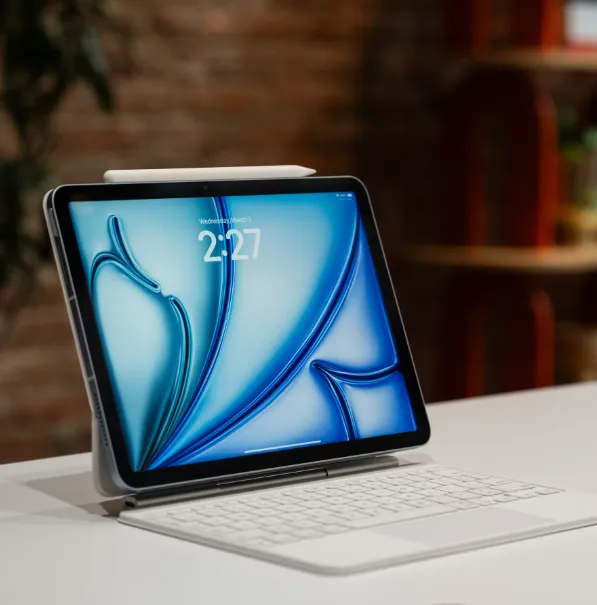Apple’s next-generation iPad Air is reportedly set to debut this spring with the M3 chip, defying earlier speculation that the company might leap straight to the M4. According to leaks from trusted sources, references to an “iPad Air 13 (M3)” have surfaced online, confirming that Apple’s popular mid-range tablet will receive a moderate but meaningful upgrade rather than a full generational jump.
Why Apple Is Sticking with the M3
The decision to equip the new iPad Air with the M3 instead of the M4 appears to be a calculated move to maintain clear separation between the Air and the premium iPad Pro. With the Pro lineup expected to receive the M5 chip later in 2025, Apple seems determined to avoid blurring the lines between its mid-tier and flagship tablets.
Recent reports suggest that Apple’s M4 iPad Pro, despite featuring an OLED display and slimmer design, has not driven the strong sales the company anticipated. By limiting the iPad Air’s performance boost, Apple is protecting the Pro’s positioning as the ultimate performance tablet for professionals and creatives.
Balancing Power and Market Position
Apple has occasionally skipped chip generations in the past, but its current approach highlights a strategic balance between innovation and product hierarchy. The M3 chip still delivers noticeable improvements in efficiency, speed, and graphics performance over the M2, making it a solid upgrade for everyday users without overshadowing the more advanced iPad Pro.
The market context also plays a role in Apple’s decision. Suppliers like LG Display have recently redirected production from iPad screens to iPhone displays, a sign that iPad Pro demand has been softer than expected. Launching an M4-equipped iPad Air now could risk cannibalizing Pro sales even further.
What Buyers Can Expect
For most consumers, the 2025 iPad Air will still represent a significant step up. The M3 chip brings faster app performance, smoother multitasking, and better battery efficiency—all while keeping the device accessible to a wider audience. However, users seeking top-tier power or professional-grade features may prefer to wait for the M5 iPad Pro arriving later in the year.
Apple’s move reflects its broader strategy of refining its product lineup rather than rushing dramatic changes. The M3-powered iPad Air might not break new ground, but it reinforces Apple’s thoughtful approach—delivering steady performance gains while keeping the brand’s tiered ecosystem intact.
